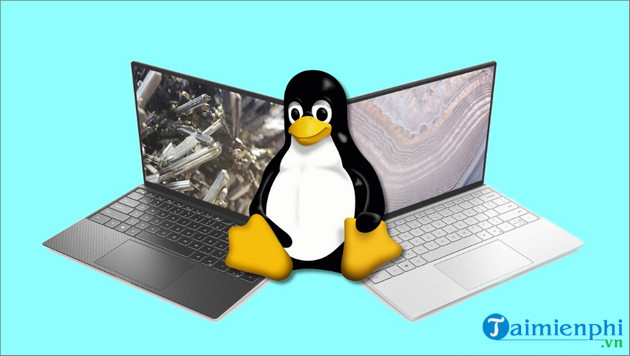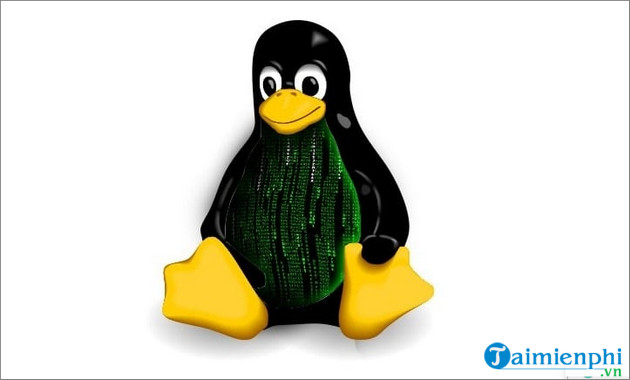What is Linux Kernel? Application functions of Linux Kernel in computer systems
Kernel is the main component and helps the operating system run many different processes simultaneously without freezing or freezing due to insufficient resources. Similarly, it can be understood that the Linux Kernel is the most important component of the Linux operating system that acts as the main interface between the computer's hardware and the operating system's functions.
1. What is Linux Kernel?
Linux Kernel is the "core" platform of Linux-based distributions and operating systems, developed by Linus Torvalds in 1991. Linux Kernel is essentially open source, free and widely used software. widely by developers around the world.
Architecturally, the Linux Kernel is a "monolithic" architecture - the operating system operates entirely in kernel space. Unlike microkernel architecture, kernel only defines and controls how the operating system communicates with computer hardware.

Additionally, unlike other standard monolithic kernels, the Linux Kernel is also available as a module, accepting LKMs (Linux Kernel Modules) to act as device drivers. LKMs can be written, maintained, and distributed by device manufacturers or developers, and can be loaded or removed from the system without rebooting or recompiling the kernel.
The Linux Kernel supports preemptive multitasking, virtual memory, shared libraries, system-level memory management, threading, and other modern operating system features. The default compiler of the Linux Kernel is GCC.
2. Application functions of Linux Kernel in computer systems
The Linux Kernel manages the entire operation of the Linux system, from scheduling processes to providing resources for applications. Below are the application functions of Linux Kernel in computer systems:
2.1. Memory management
Allocating and freeing physical memory is part of the basic functionality of the Linux Kernel. There are three levels of address storage, in which page is the basic unit of memory, usually 4096 bytes in size.
Most tasks are handled through system calls. The memory management unit is responsible for Paging and Swapping in virtual memory. Virtual memory is allocated to a completely separate process, providing a layer of protection from malicious programs.
Some Linux commands such as "htop" and "atop" can be used to monitor memory-related information of running processes.

2.2. Process management
Each program running on the system is called a process. The Linux Kernel manages the creation, running, and deletion of all processes. Processes in the system require CPU to execute.
In addition, another function of the Linux Kernel is IPC (Inter-Process Communication). Mechanisms such as Pipe and Semaphore cooperate with the kernel in inter-process communication.
To quickly see all running processes along with properties like scheduling priority and CPU occupancy percentage, we can run the "htop" command in a Terminal window.
2.3. Equipment management
Linux Kernel is the bridge between the operating system and the hardware.
3. Components of Linux Kernel
Linux Kernel is simply understood as a resource manager (managed resources can be processes, memory or hardware devices), responsible for managing and delegating resource access rights to applications.
The Linux Kernel exists in Kernel Space, below User Space, where user applications are executed. For User Space to communicate with Kernel Space, the GNU C Library is incorporated to provide a forum for the System call interface to connect to Kernel Space and allow conversion back to User Space.
Basically, the Linux Kernel can be divided into 3 main parts:
- System call interface: This is the top part, performing basic actions such as reading and writing.
- Kernel Code: Located below the System call interface, common to all processor architectures supported by Linux.
- Architecture-dependent code: Located below the architecture-independent code, forms the Board Support Package (BSP) - this package contains a small program called a bootloader to bring the operating system and device drivers into memory.

Linux Kernel components include: System call interface, Process Management, Virtual File System, Memory Management, Network Stack, Architecture and Device Driver.
In there:
- System call interface: This is the layer used to make function calls from User Space to the kernel. This interface may be architecture dependent.
- Process Management: Mainly executes processes. Also Process Management is called Thread in the kernel and represents an individual virtualization of a particular processor.
- Memory Management: Linux includes methods to manage available memory as well as hardware mechanisms for physical and virtual maps. Swap space is also supported.
- Virtual file system: Provides a conversion layer between system calls and file systems supported by the kernel.
- Network Stack: Designed as a layered architecture modeled on specific protocols.
- Device Drivers: Much of the kernel's source code is stored in Device Drivers, making it usable by specific device hardware. Linux provides a driver subdirectory divided into many different supported devices, such as I2C, Bluetooth, .
- Architecture-dependent code: Although most of Linux runs on an independent architecture, however There are a number of factors that need to be considered to ensure architectural efficiency and proper operation.
Linux consists of many subdirectories, and each subdirectory architecture has many other subdirectories. These subfolders focus on kernel specific tasks such as memory management, booting, . .
So the above article TipsMake has just answered your question: What is Linux Kernel? Application functions of Linux Kernel in computer systems. Hopefully after the article, readers will have more useful information about this operating system.
In addition, if you want to run the Linux operating system in Windows but do not know how, readers can refer to the instructions on how to create a USB running Linux in Windows shared in the article below.